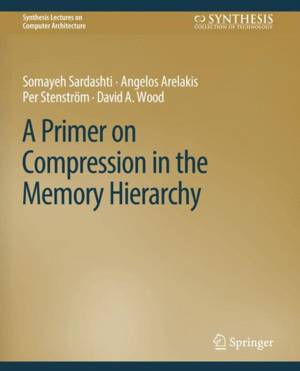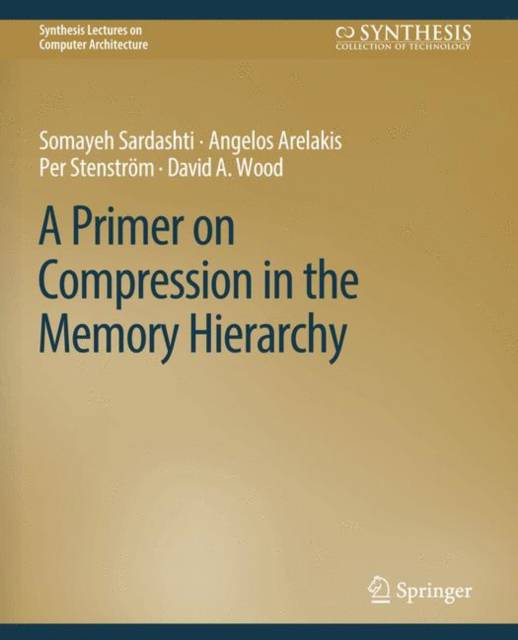
- Afhalen na 1 uur in een winkel met voorraad
- Gratis thuislevering in België vanaf € 30
- Ruim aanbod met 7 miljoen producten
- Afhalen na 1 uur in een winkel met voorraad
- Gratis thuislevering in België vanaf € 30
- Ruim aanbod met 7 miljoen producten
Zoeken
A Primer on Compression in the Memory Hierarchy
Somayeh Sardashti, Angelos Arelakis, Per Stenström, David a Wood
€ 29,95
+ 59 punten
Uitvoering
Omschrijving
This synthesis lecture presents the current state-of-the-art in applying low-latency, lossless hardware compression algorithms to cache, memory, and the memory/cache link. There are many non-trivial challenges that must be addressed to make data compression work well in this context. First, since compressed data must be decompressed before it can be accessed, decompression latency ends up on the critical memory access path. This imposes a significant constraint on the choice of compression algorithms. Second, while conventional memory systems store fixed-size entities like data types, cache blocks, and memory pages, these entities will suddenly vary in size in a memory system that employs compression. Dealing with variable size entities in a memory system using compression has a significant impact on the way caches are organized and how to manage the resources in main memory. We systematically discuss solutions in the open literature to these problems. Chapter 2 provides the foundations of data compression by first introducing the fundamental concept of value locality. We then introduce a taxonomy of compression algorithms and show how previously proposed algorithms fit within that logical framework. Chapter 3 discusses the different ways that cache memory systems can employ compression, focusing on the trade-offs between latency, capacity, and complexity of alternative ways to compact compressed cache blocks. Chapter 4 discusses issues in applying data compression to main memory and Chapter 5 covers techniques for compressing data on the cache-to-memory links. This book should help a skilled memory system designer understand the fundamental challenges in applying compression to the memory hierarchy and introduce him/her to the state-of-the-art techniques in addressing them.
Specificaties
Betrokkenen
- Auteur(s):
- Uitgeverij:
Inhoud
- Aantal bladzijden:
- 70
- Taal:
- Engels
- Reeks:
Eigenschappen
- Productcode (EAN):
- 9783031006234
- Verschijningsdatum:
- 16/12/2015
- Uitvoering:
- Paperback
- Formaat:
- Trade paperback (VS)
- Afmetingen:
- 190 mm x 235 mm
- Gewicht:
- 167 g

Alleen bij Standaard Boekhandel
+ 59 punten op je klantenkaart van Standaard Boekhandel
Beoordelingen
We publiceren alleen reviews die voldoen aan de voorwaarden voor reviews. Bekijk onze voorwaarden voor reviews.











